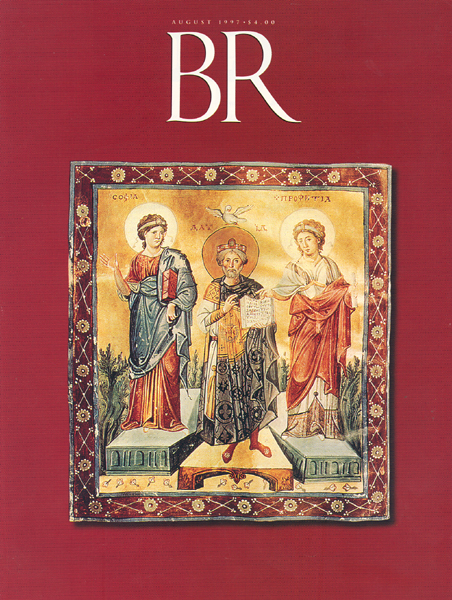Bible Review, August 1997

Features
Unfortunately, it’s impossible to avoid The Bible Code (Simon & Schuster, 1997), by former Wall Street Journal and Washington Post reporter Michael Drosnin, with its Nostradamus-like warnings about earthquakes in Los Angeles and nuclear annihilation—all embedded within the Hebrew text of the Bible through a secret code. Drosnin’s claims are an extension of the […]
If the Bible is the ineffable word of God, then it makes sense that all truth is to be found in it. An early rabbinic sage by the delightful name of Ben Bag-Bag said, “Turn it and turn it again, for all things are in it.”1 The history of biblical interpretation is filled with […]
The recent massive publicity surrounding Michael Drosnin’s book The Bible Code has aroused, alas, a great deal of interest in the patently ridiculous idea that future events were encoded in the “original Hebrew” text of the Bible—and done in such a way that they could only be decoded in our day with computers.
For decades, the Wisdom literature in the Hebrew Bible has been the “poor relation,” living in the shadow of other supposedly more significant biblical genres, such as the Law and the Prophets, as well as the stories in Genesis. Wisdom literature (primarily the books of Proverbs, Ecclesiastes and Job), we are told, is “secular,” […]
Even though the city has changed its name back to St. Petersburg, the book is still called the Leningrad Codex. It’s the oldest complete manuscript of the Hebrew Bible in the world. Since glasnost—remember that?—we have been able to photograph it using the latest equipment and photographic techniques and to prepare a new replica […]
As Paul was journeying to Damascus to persecute the Christians there, “suddenly a light from heaven flashed about him. And he fell to the ground and heard a voice saying to him, ‘Saul, Saul, why do you persecute me?’” (Acts 9:3–4). Question: At this critical moment, when Paul was converted to Christianity, did he […]
